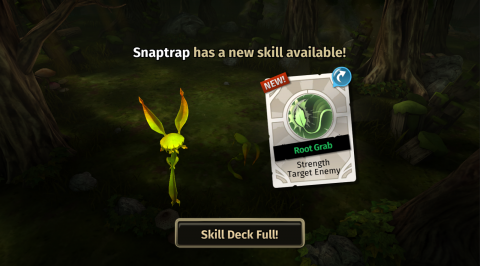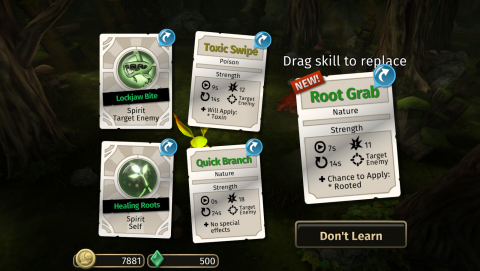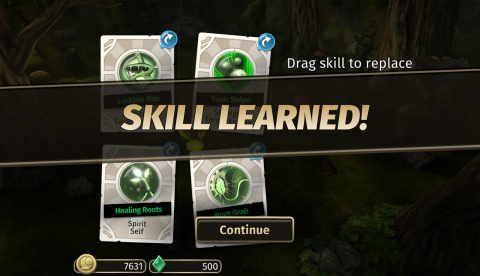by Brian Giaime
What does “Balance” really mean?
Balance is a misleading term. You might think this means “everything is as good as everything else”. This isn’t entirely incorrect, but it misses out on one of the great things we can create through games: A series of interesting decisions.
If every piece on the board is identical, and every move you make is of equal effectiveness, you may have a decision to make, but it isn’t necessarily interesting. Worse, if one piece is extremely powerful and the rest are weak, you don’t really have a decision at all – you use the powerful piece! Imagine if there are a variety of pieces which have varying levels of power, but that power depends on the situation they’re in, or how you choose to use them. Perhaps one piece goes twice as far if you choose to move it first, while another piece is twice as powerful if you choose to move it second. By differentiating how you affect the game in ways that are varied, with no clear “correct” answer as to what you should do next, we keep the game interesting.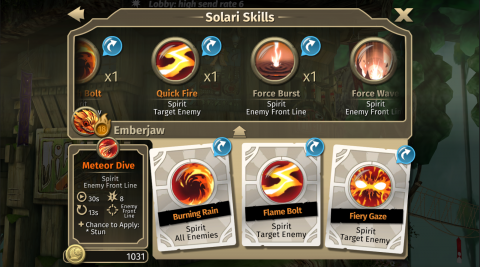
Balance, at least for the purposes of this article, is the act of making the decisions available to you feel both interesting and useful, removing “dominant strategies” (ways to play that are so effective they prevent other ways to play from being used), and ensuring that the things players find fun are also things that can lead to success.
Elements to consider
So what does this mean to Moonrise? Quite a bit, actually. We’ve got over a hundred Solari, each type drawing three skills from a pool of around 65 skills that it can learn (out of the pool of over 200 total), plus their own unique skill and one of a handful of different passive traits, on a team of six total Solari. That’s already quite a few options and combinations to consider!
On top of that, you’ve got your Warden, with their two relics, their gear, and the stats & modifiers that come from gear, presenting even more combinations of stats and skills.
Fun math sidebar:
Combination Without Replacement Formula: nCk = n! / (n-k)!k!
50 major relics, from which we choose 1 = 50
50 minor relics, from which we choose 1 = 50
For all 6 solari: let’s say 6 available passives, from which we choose 1 = 6
For all solari: average of 65 learnable skills, from which we choose 3, with no duplicates = 43,680Combination With Replacement Formula: nCk = (n+k-1)! / (n-1)!k!
100 Solari from which we choose 6, with duplicates allowed = 1,609,344,100
Total Combinations: 50 * 50 * 6 * 43,680 * 1,609,344,100 = 1,054,442,254,320,000,000That’s a quintillion.
If you had a cubic meter of water for every combination of Solari, Traits, Skills, and Relics, you’d have as much water as the Pacific Ocean!
So there’s a lot to consider. As your adventure progresses, you’ll discover countless new elements to try out, and it’s our goal to make sure every single one you discover feels cool and useful — at least for awhile, before another cool relic or skill shows up that might tempt you away from the first.
Everyone loves the technical part
Now, let’s talk about what it means to actually do this, to take an impossibly large set of variations and approach giving it a sense of balance, and prevent at all costs combinations which are overwhelmingly more effective than others.
At a high level, we’re going to model how useful the component pieces of the game are. In order to give ourselves a coherent “unit” for comparison, we generally “score” the effectiveness of a given skill, in terms of DPS, or Damage Per Second. We know the cast time for a skill, how long it’ll take for animations to happen in game, how long it’ll take the skill to “boot up”, and how long it’ll take for the skill to “cool down” after being used. This allows us to compute the damage per second that a simple skill can achieve.
This gets more complex when you incorporate Buffs and Debuffs, how many targets are hit by a given skill, any negative impacts which impact the user, and so on. In order to keep ourselves sane, most balance work is done in terms of “effective damage per second”, or just “effectiveness.” Buffs and debuffs are approximated to be about as useful as a given amount of damage, so that altogether we have a single value we can use to compare any two skills.
We have an interval of overall effectiveness that is considered “acceptable” for skills based on how far into the game you are when you receive them; when creating a new one, the first thing we do is aim for a given effectiveness. If that falls within the given interval, we’re probably looking at a “mostly balanced” skill. I say mostly, because at the end of the day, this is just a model. To quote a proper statistician, “All models are wrong, but some are useful.” There’s no substitute for playing the game and testing one’s theories about what is and is not balanced.

As your Solari evolve, you’ll find they increase in “tier.” As they do, they begin to learn higher-tier skills, which have higher values for their overall effectiveness. Sometimes these are merely upgraded versions of similar skills from a lower tier. However, you’ll also find that some higher-tier skills do more interesting stuff — maybe stun an enemy and burn them at the same time, or perhaps damage yourself when used in exchange for a super-short cooldown, allowing you to take more risk in exchange for more reward.
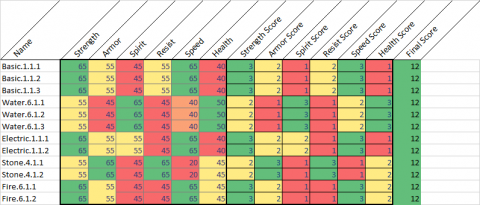
Balance in Moonrise extends farther than just skills and relics – your Warden and Solari have stats which must be considered against one another.
While we’re constantly iterating on stats, amongst many other things, each Solari’s starting stats are scored and considered against other Solari. This means that every Solari is set up with two goals: to have specific strengths and weaknesses in terms of its stats, and to have, on average, the same amount of overall power as any other given Solari.

An important note: This assumes that all stats are equally useful, at least at the intervals denoted here. Ensuring that a point of Strength, a point of Resist, and a point of Speed are all of equal utility is by far the most challenging part of balance! We’re constantly tweaking the degree to which these stats empower or protect a given character, always on the alert to make sure that no one stat becomes dominant or useless.
As we said at the beginning, we want to maintain as many viable strategies or builds as possible. At the end of the day, that winds up being a huge component of how much game there is to play.
Not losing the forest for the trees
All that being said… even with all of this data in hand, models prepared, balance checks met, it’s important to realize that we’re not looking at “the game.” We’re looking at the component pieces (the leaves on the trees, so to speak), not the actual experience the players are having. It is absolutely vital, when considering whatever certainty we can generate in a spreadsheet, to take it with an awful lot of salt. We’ll almost certainly discover via playing the game that the models were somehow incomplete, the balance we thought was perfect was ignorant of a certain combo or behavior pattern, or worse, that exploits exist which undermine our carefully honed numbers.
All of these, in the end, are far more important than getting a bunch of cells in a spreadsheet to have the same “score.” Sometimes we must break our patterns, or models, regardless of how elegant things seem, because of the innumerable little things that crop up through actual play. Some expert players will select and cast their skills super fast. Others may take twice or three times as long, effectively adding that time to their skills, and reducing their overall effectiveness. Maybe someone just really wants to use their favorite Solari, even though they have an affinity disadvantage. It’s important not to rely on people playing your game a certain way. Instead, explore how all of your players will act, and ensure, to the best of your ability, that they’re all set up to have a great time.
No one number, or system, or axis, or curve — no matter how pretty or elegant — matters more than the player experience.
In closing
That’s all for this week, though it’s certainly a lot to chew on! I hope this and the other articles on Moonrise’s combat and customization have been thought provoking, and thank you for reading this far! We’re super excited to get the game into our players’ hands, and can’t wait to tell you more.
Tune in next week for some insight into PvP from our Design Director, Richard Foge!
Any comments? Questions beyond how to pronounce “Giaime”? (gee-AHH-mee) Would you like to stay up to date? Follow the game on Facebook (https://www.facebook.com/moonrisemobile) or Twitter @MoonriseMobile, and click the green tape down and to the right to chat with our small but feisty Moonrise community.
